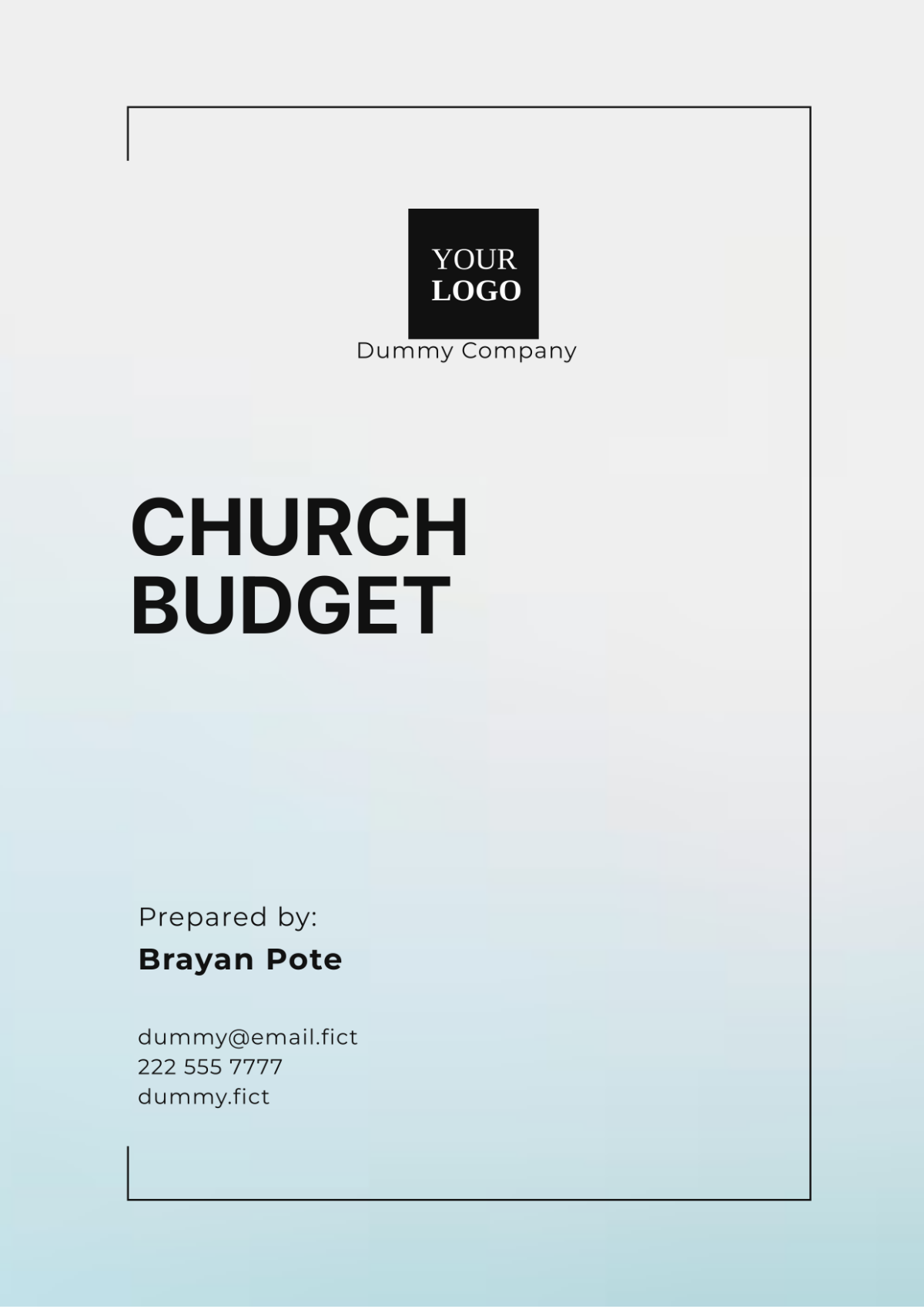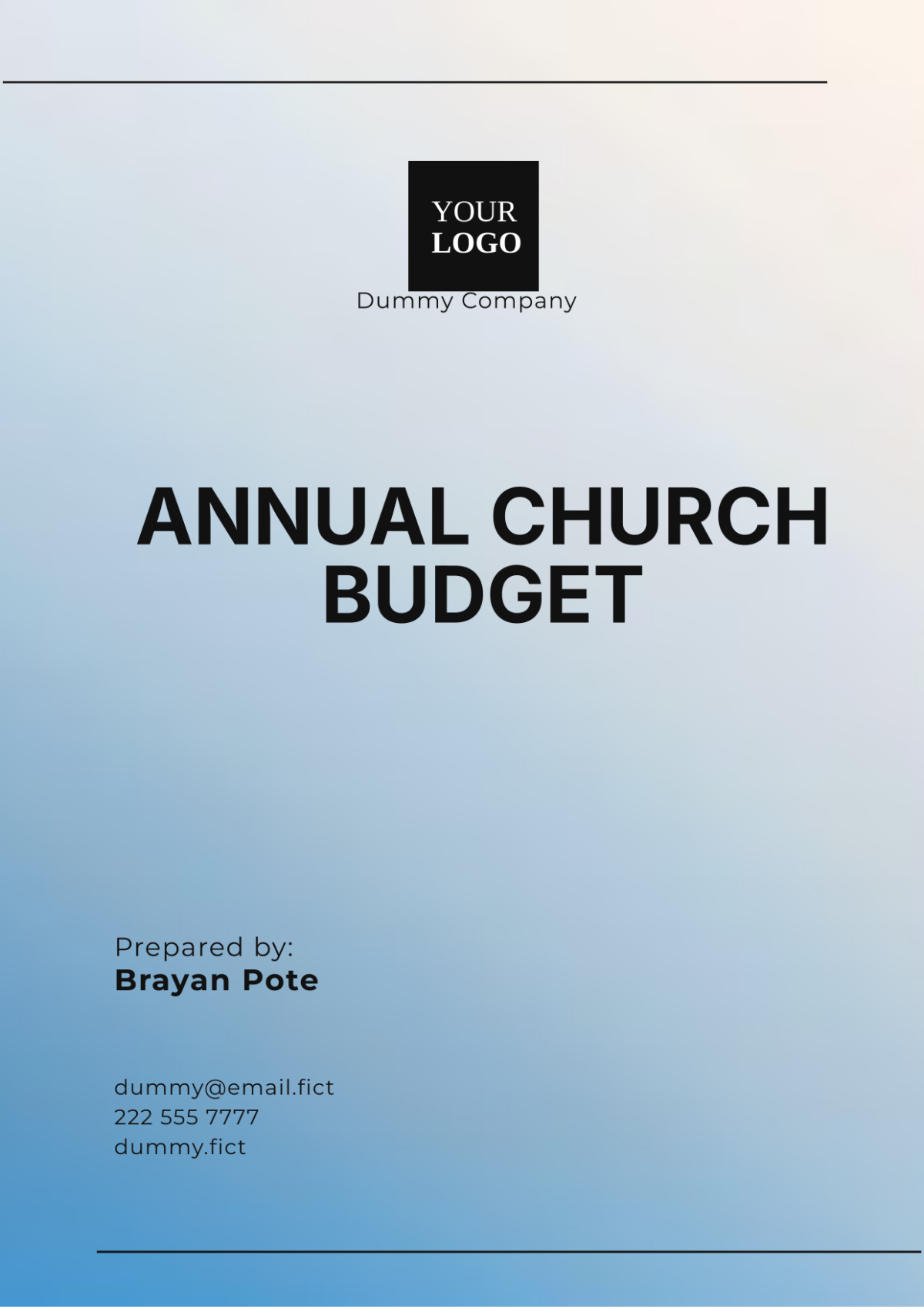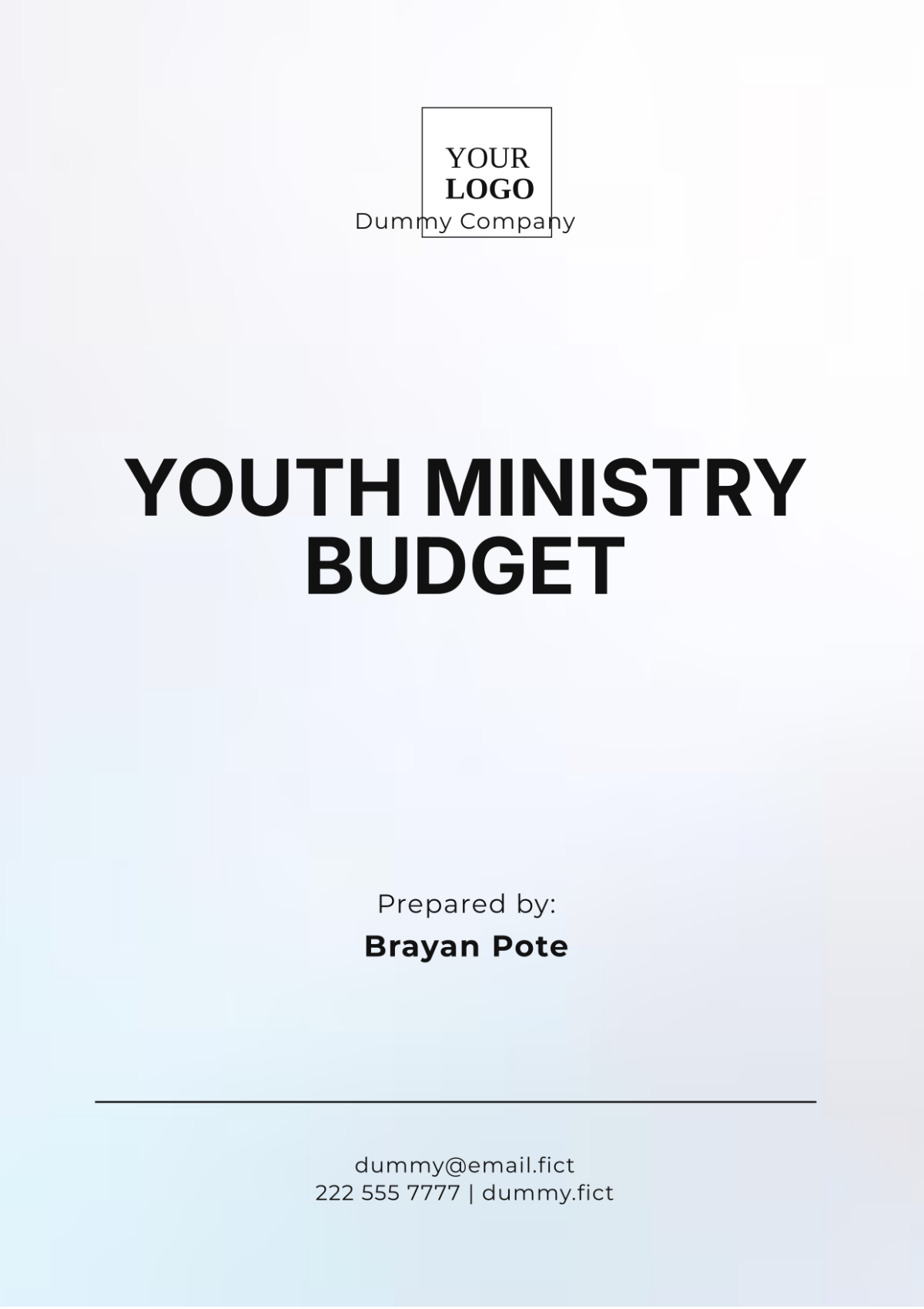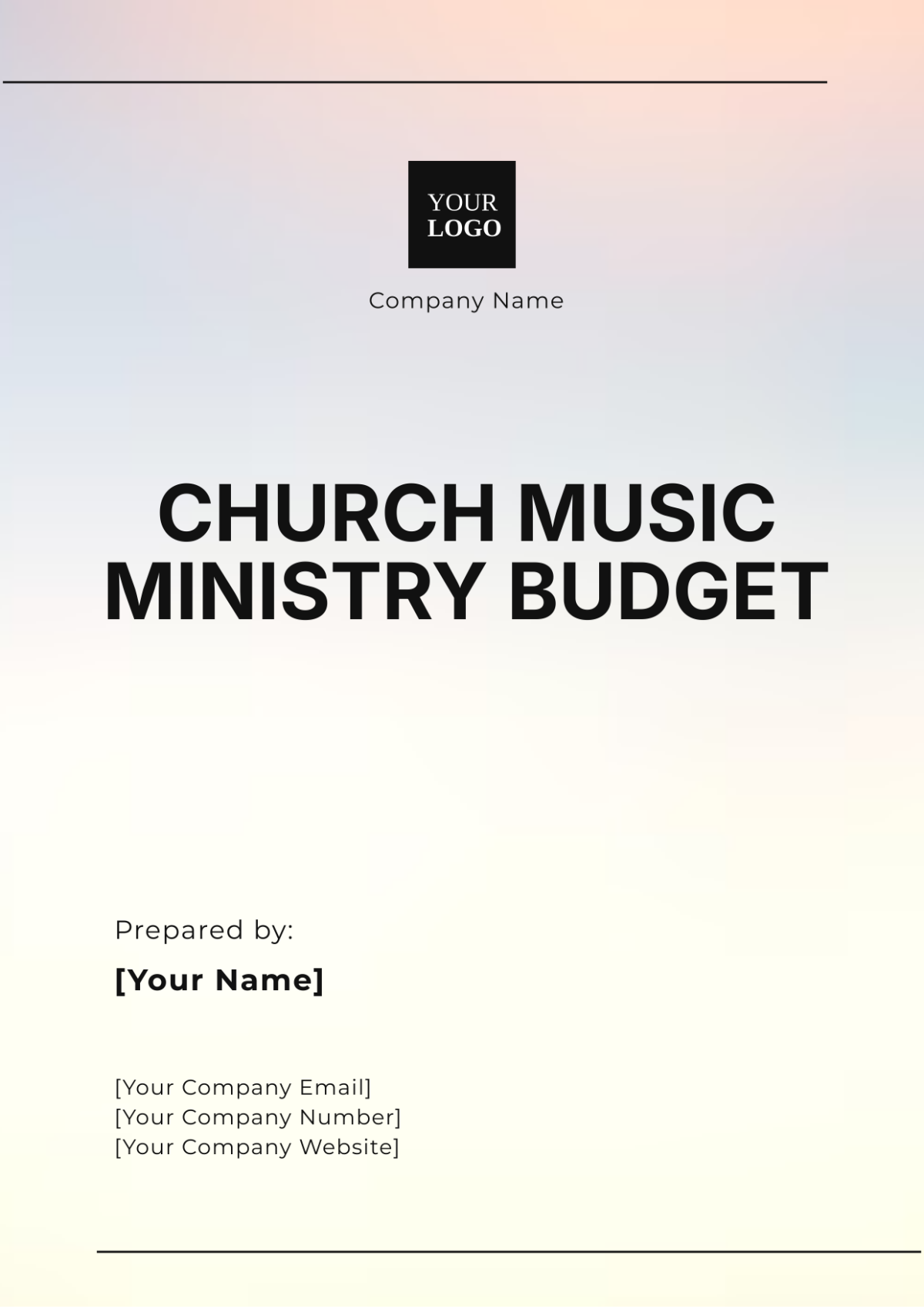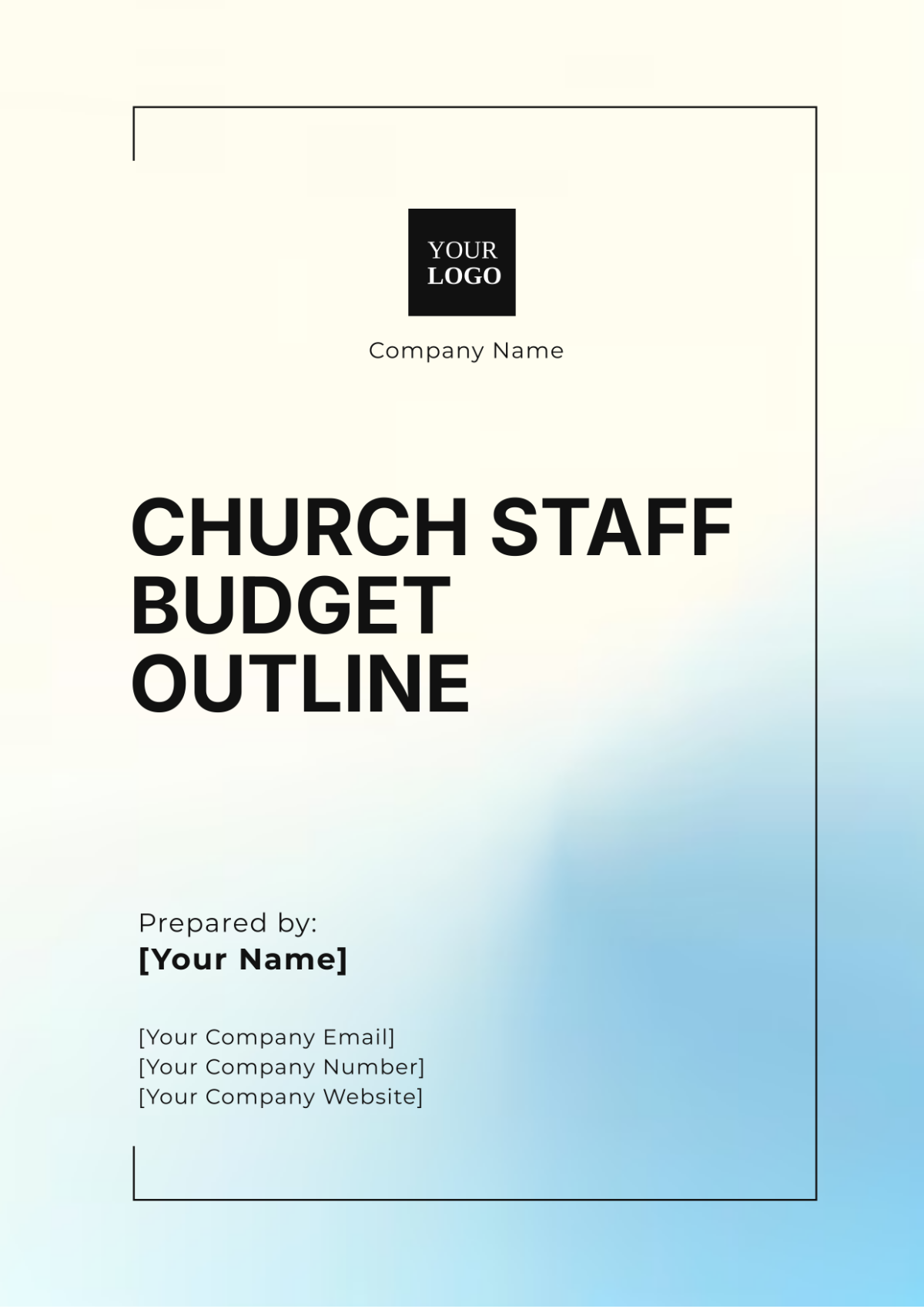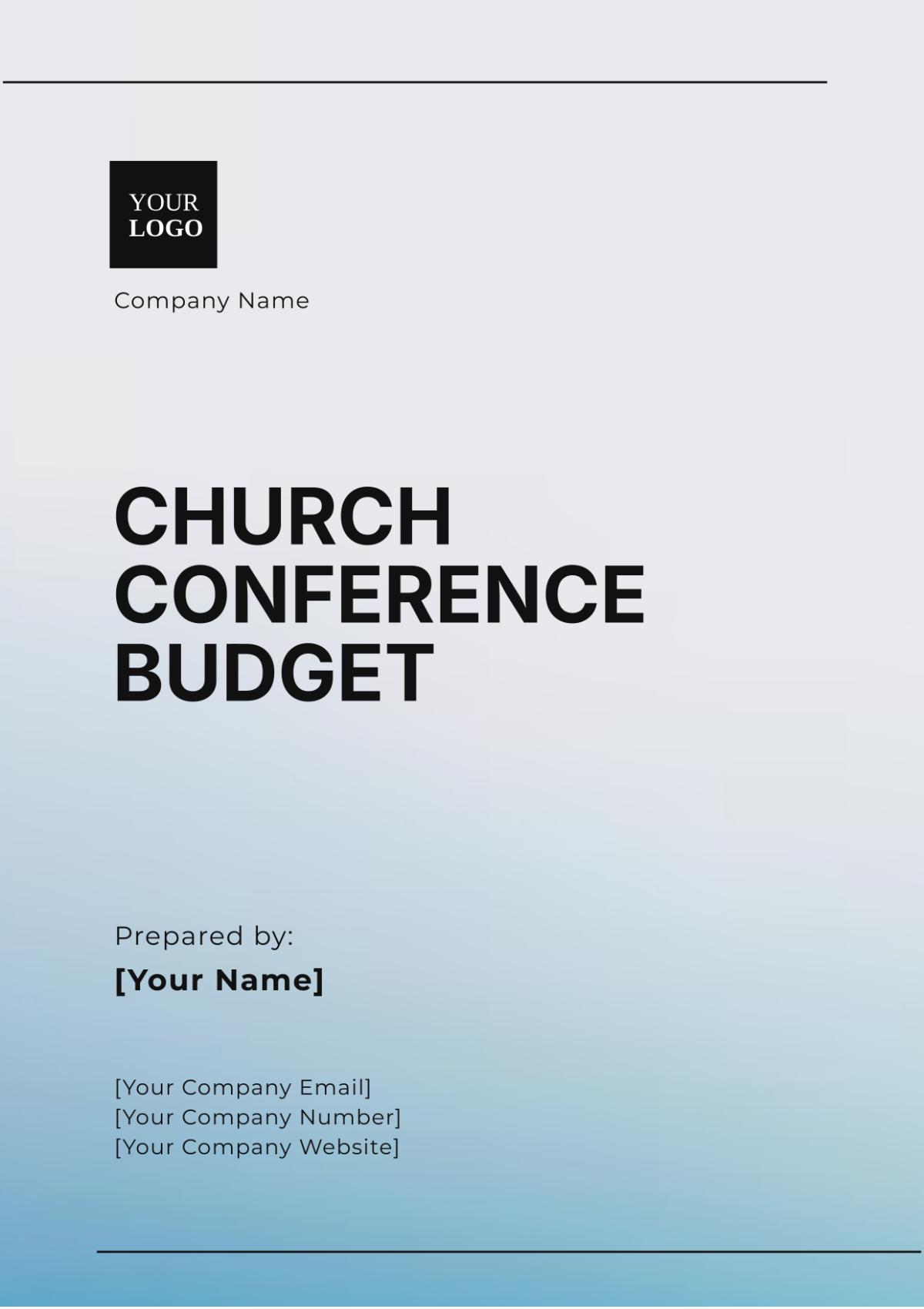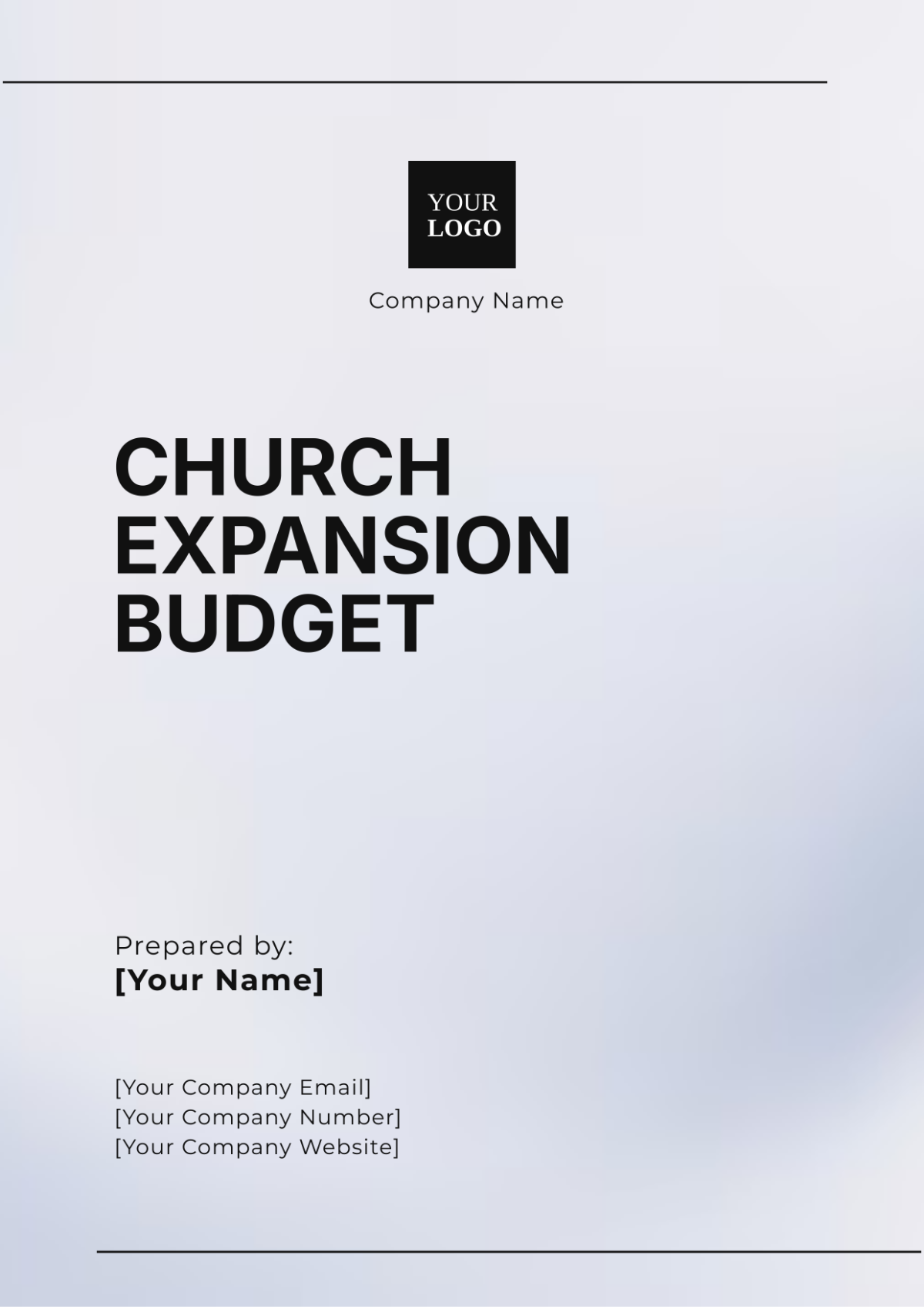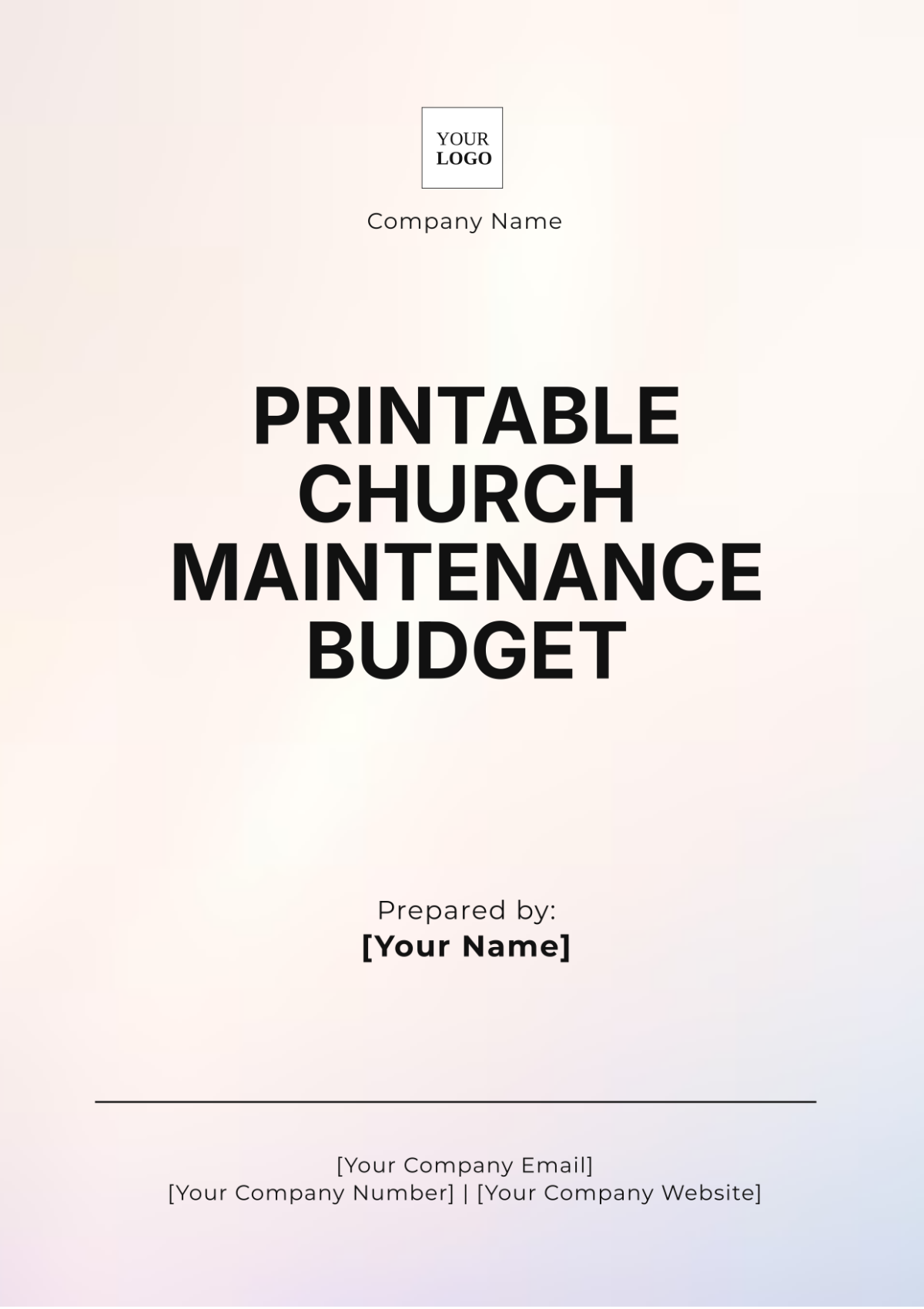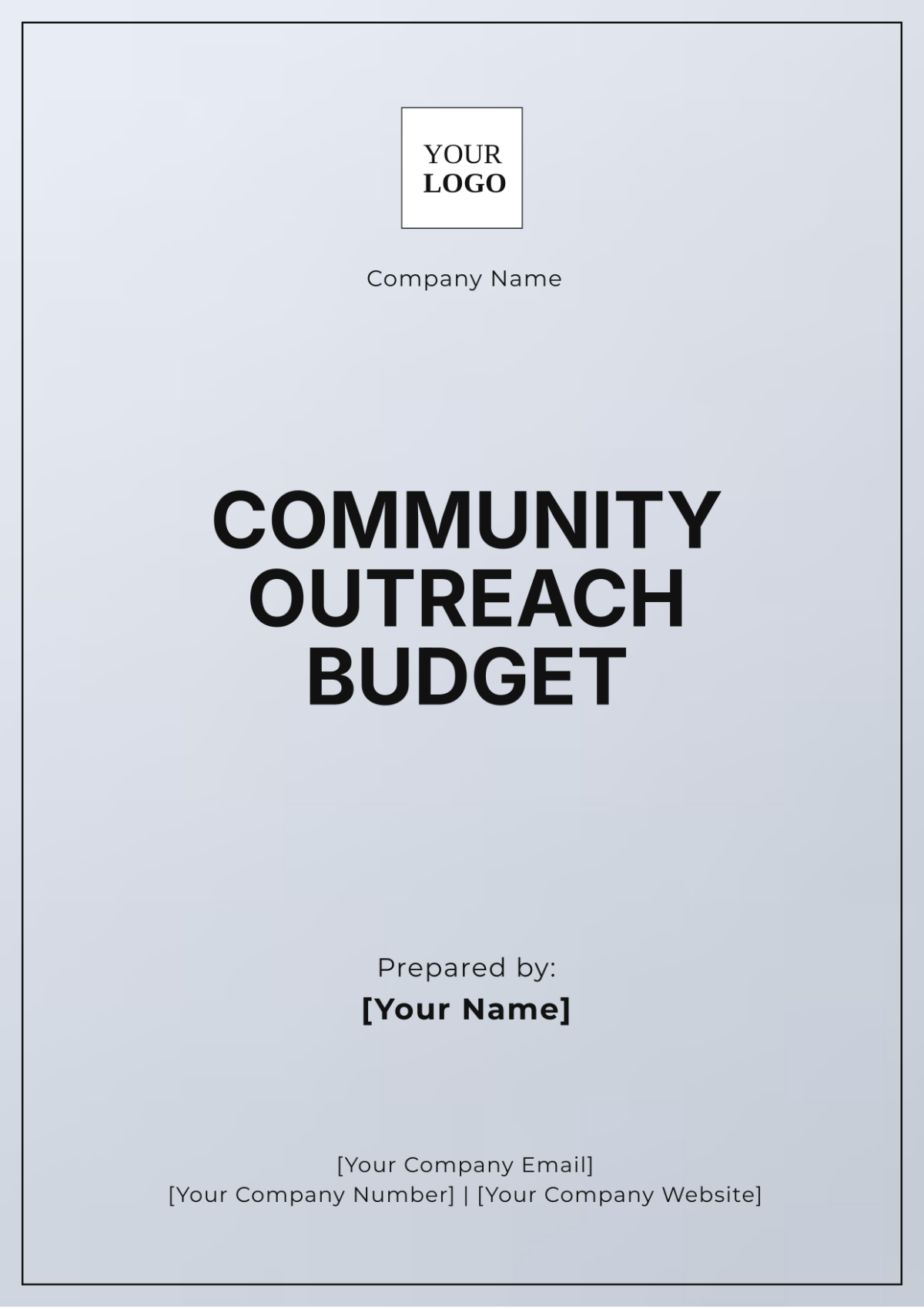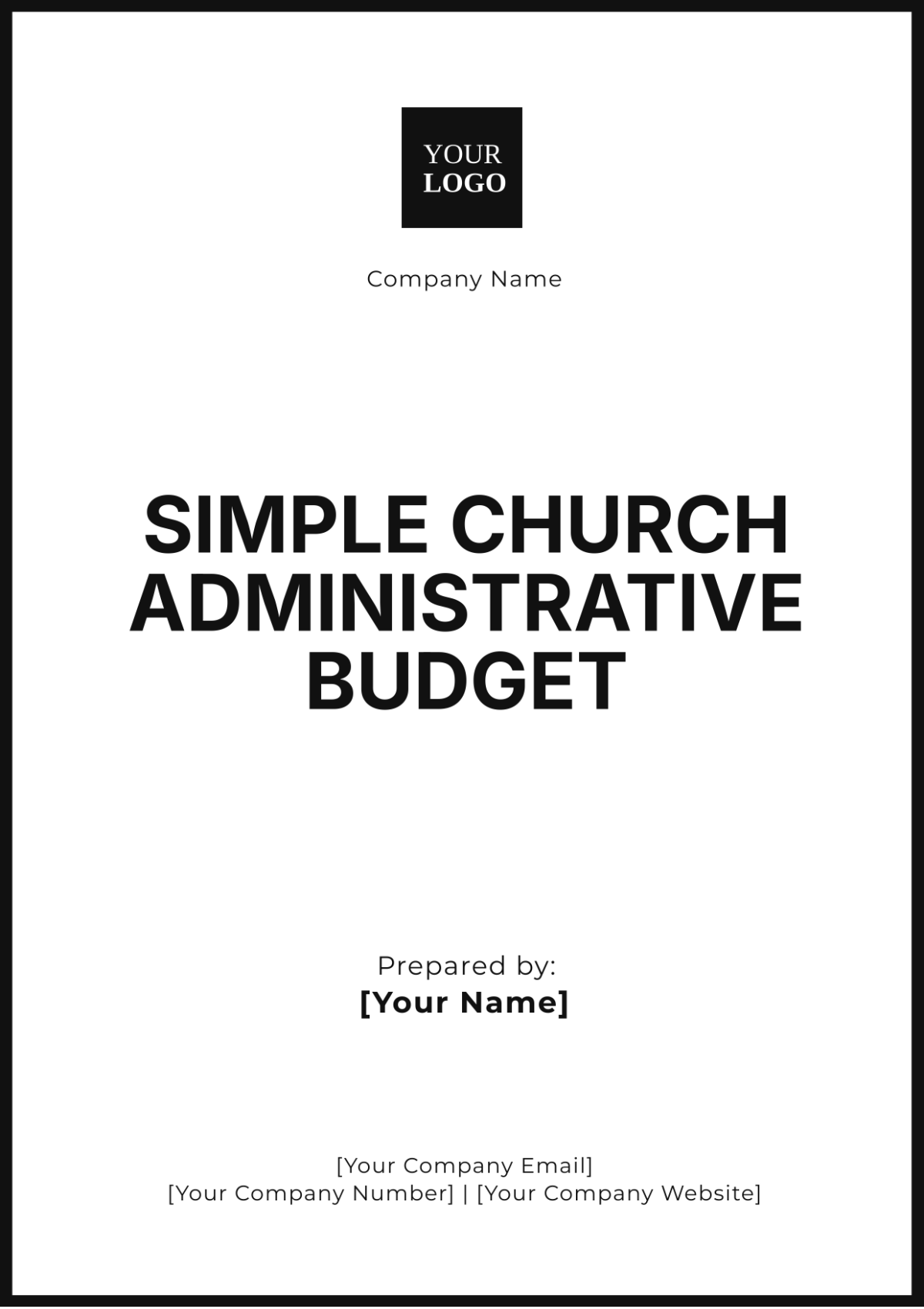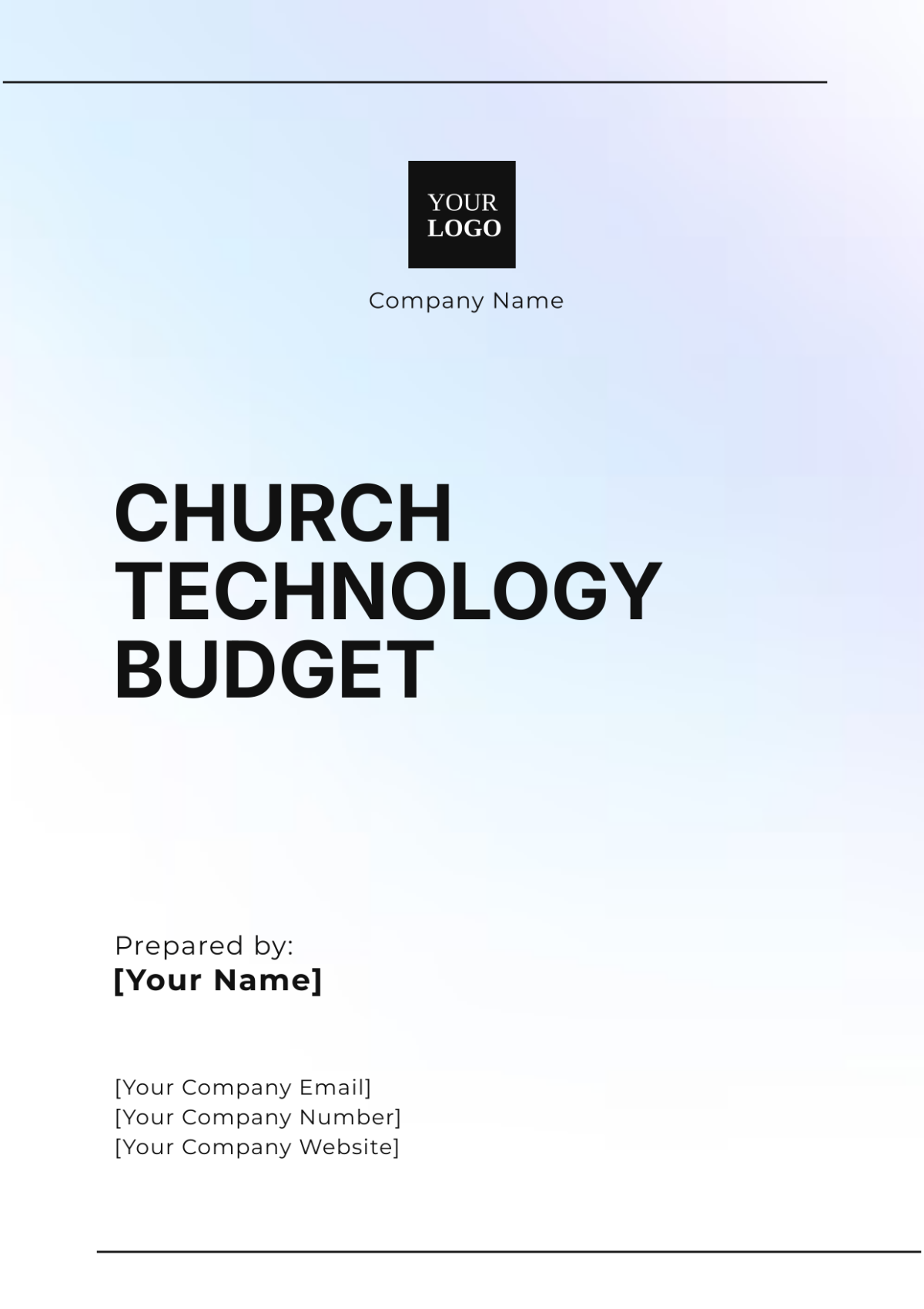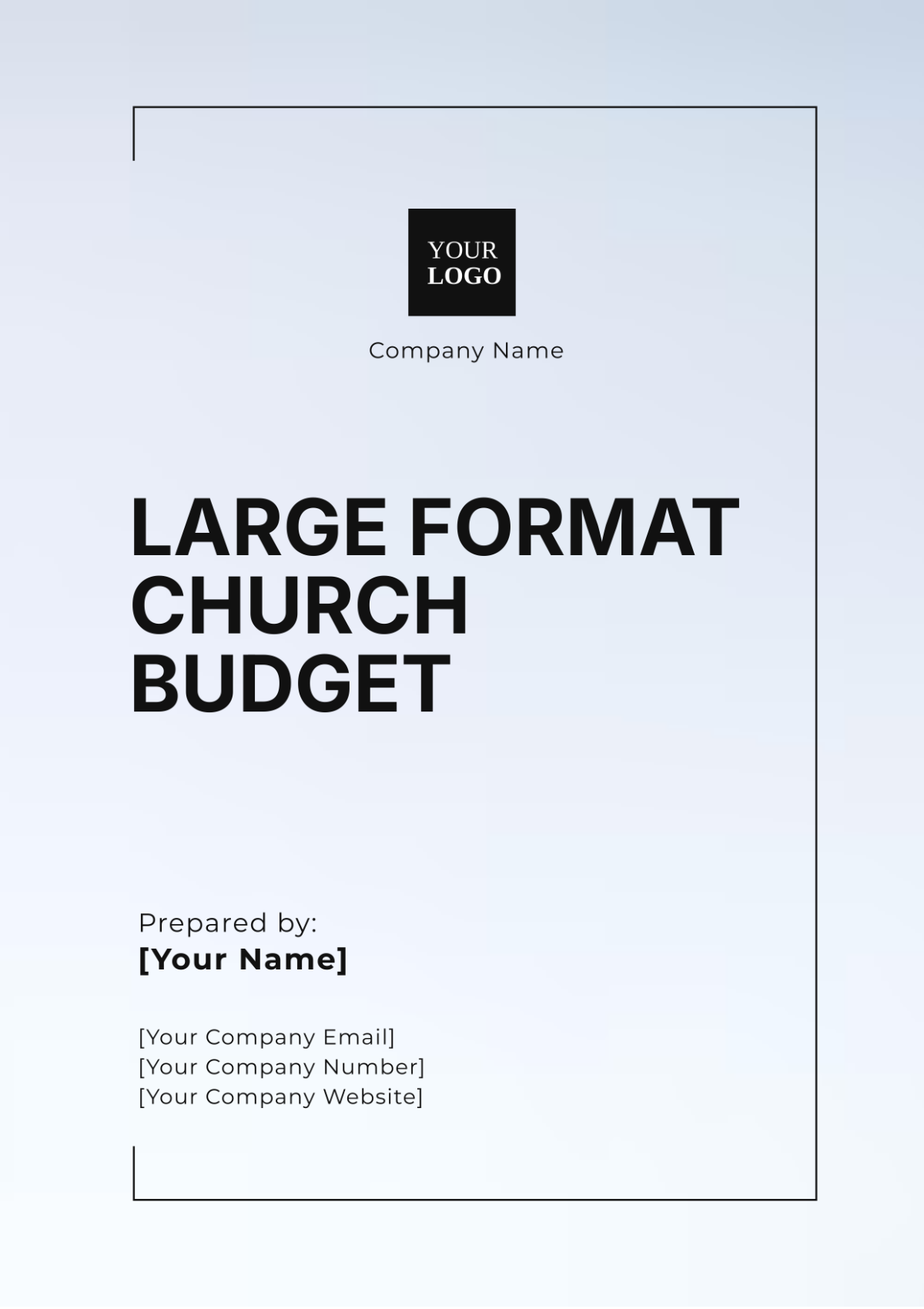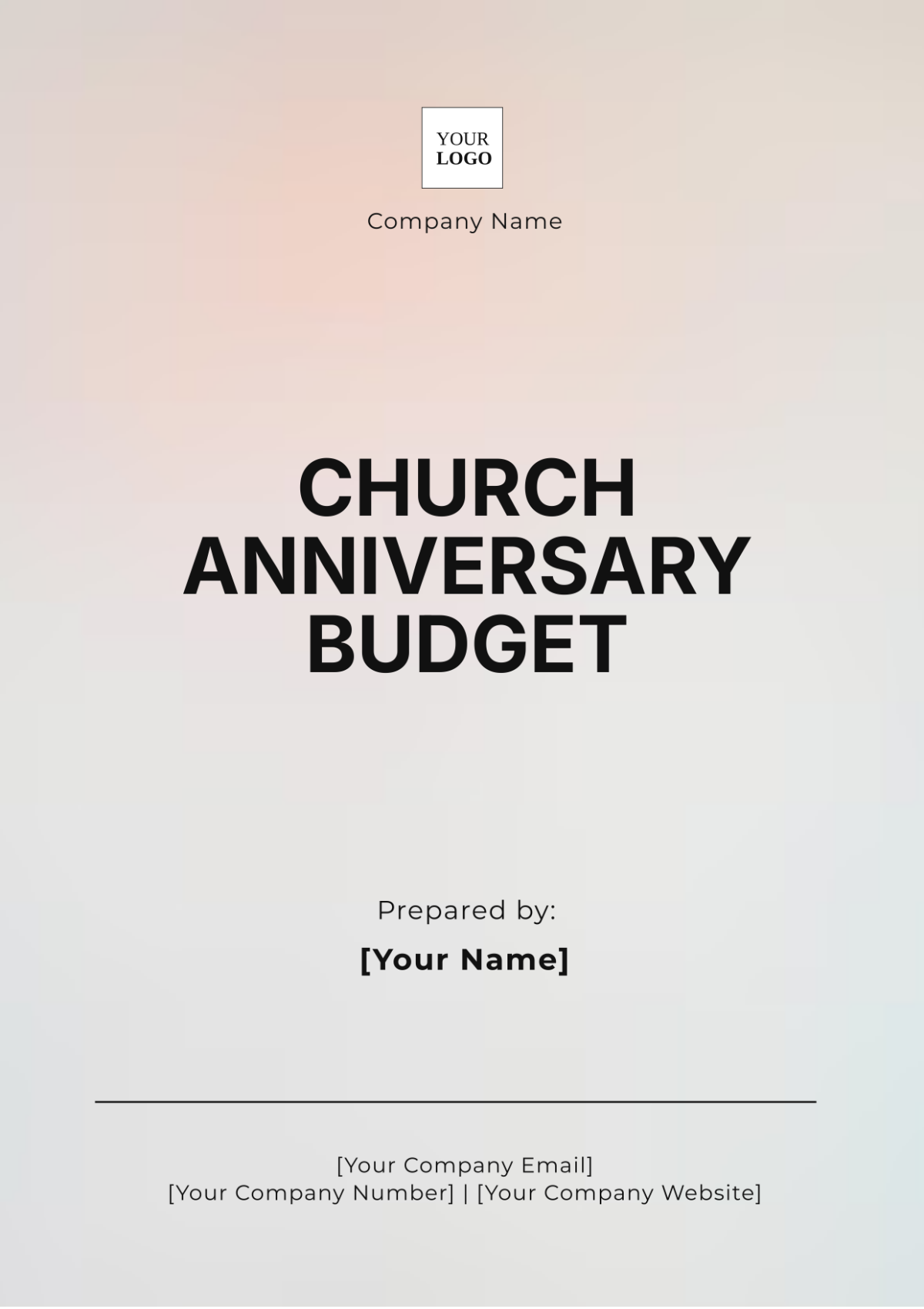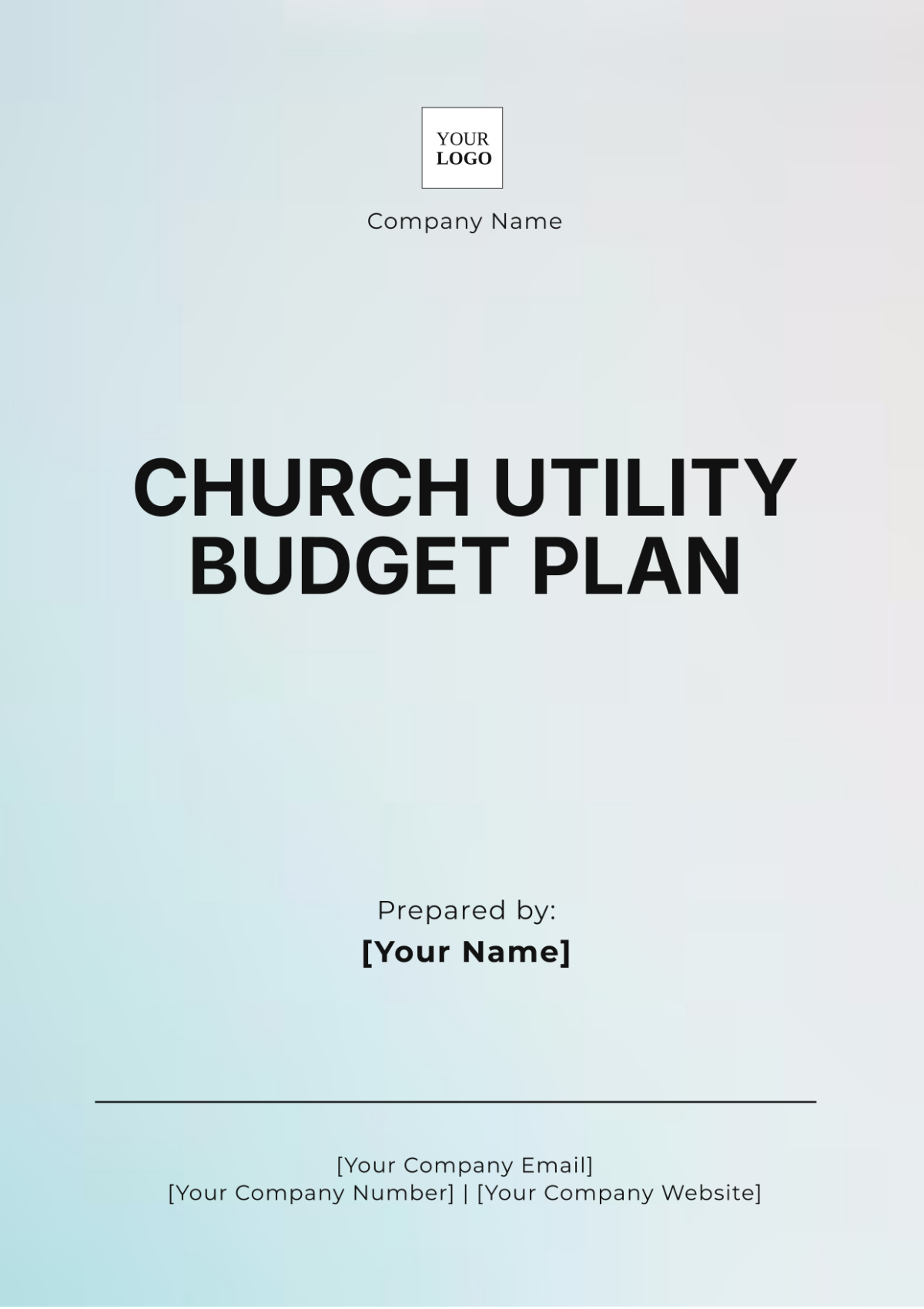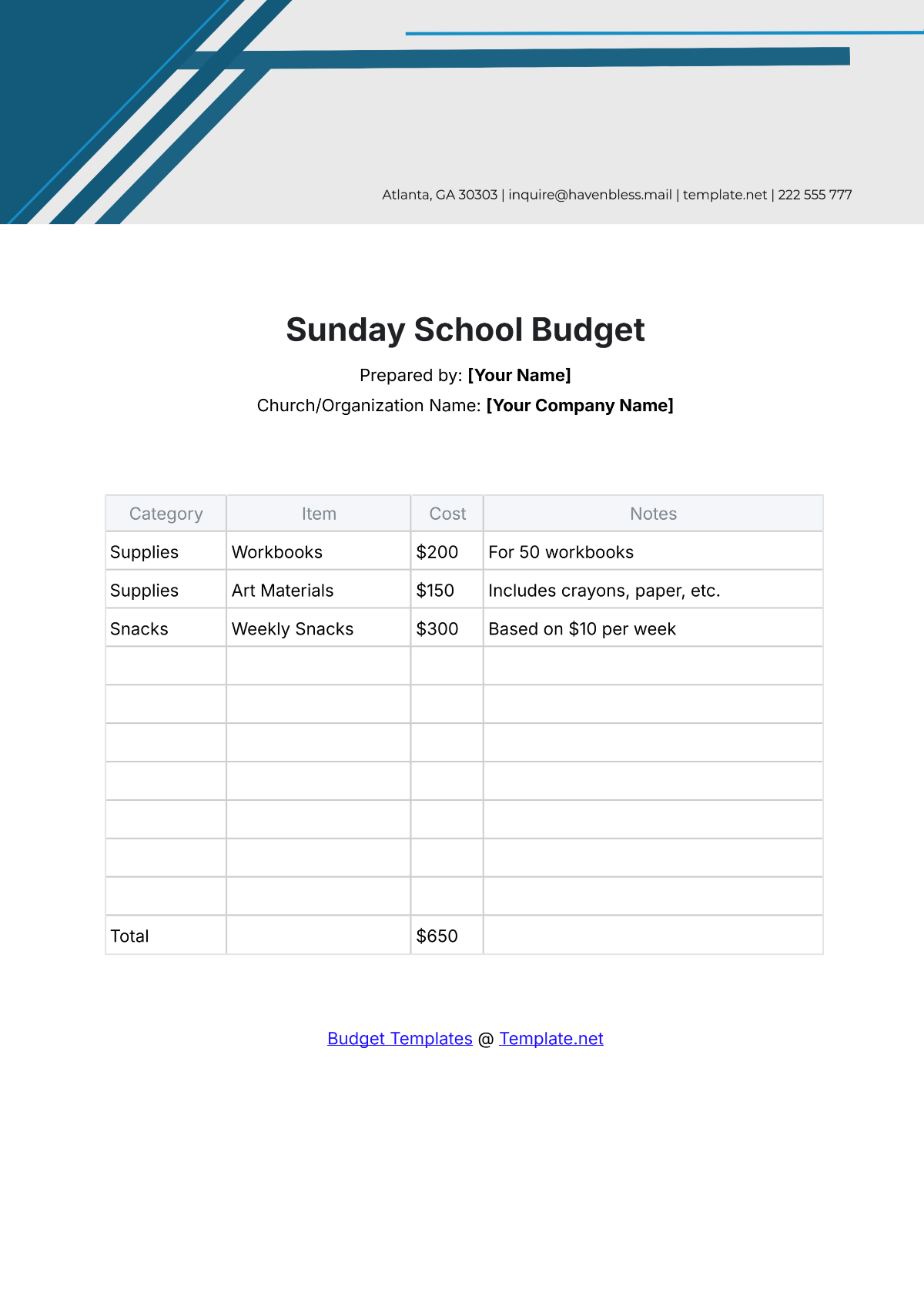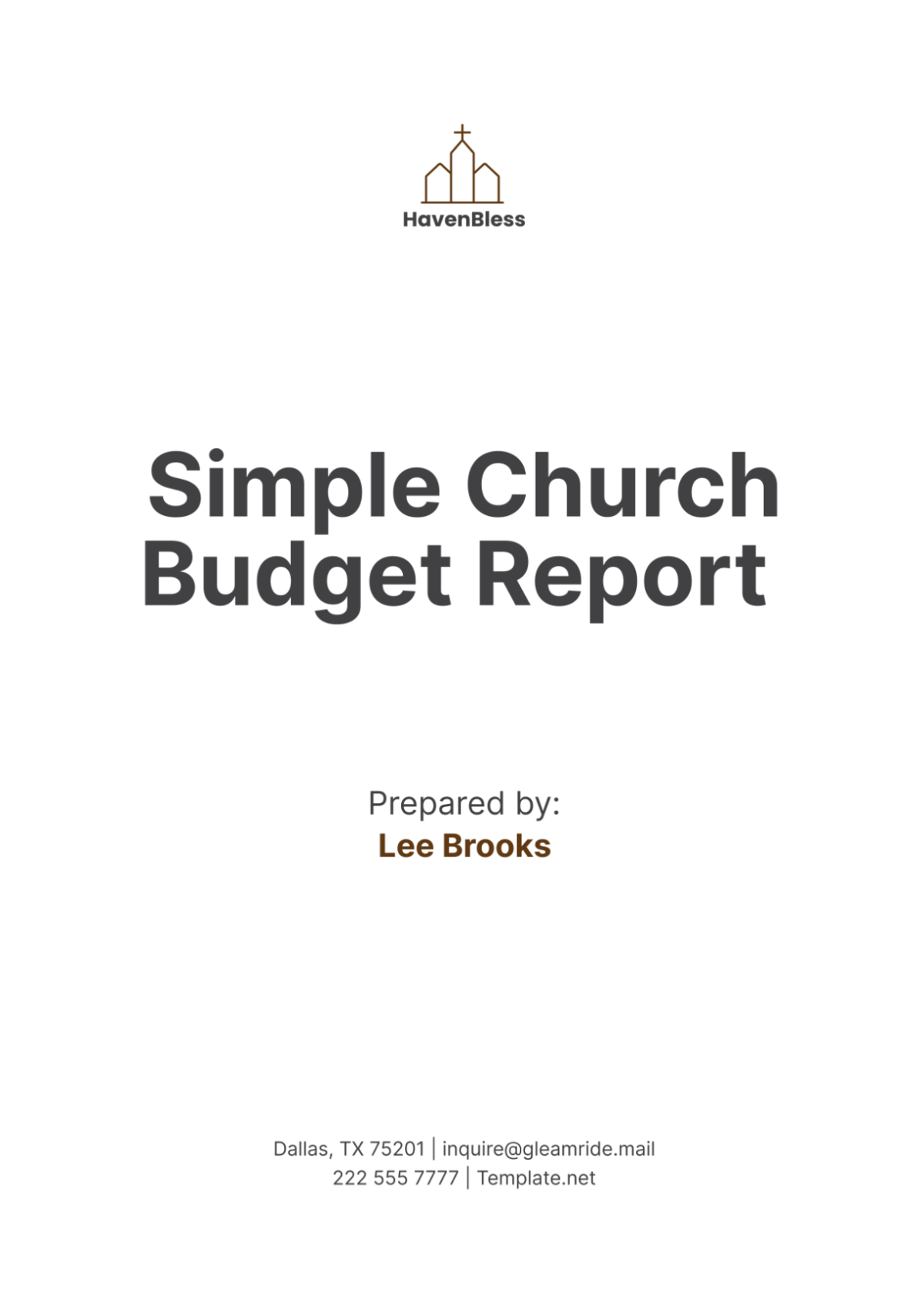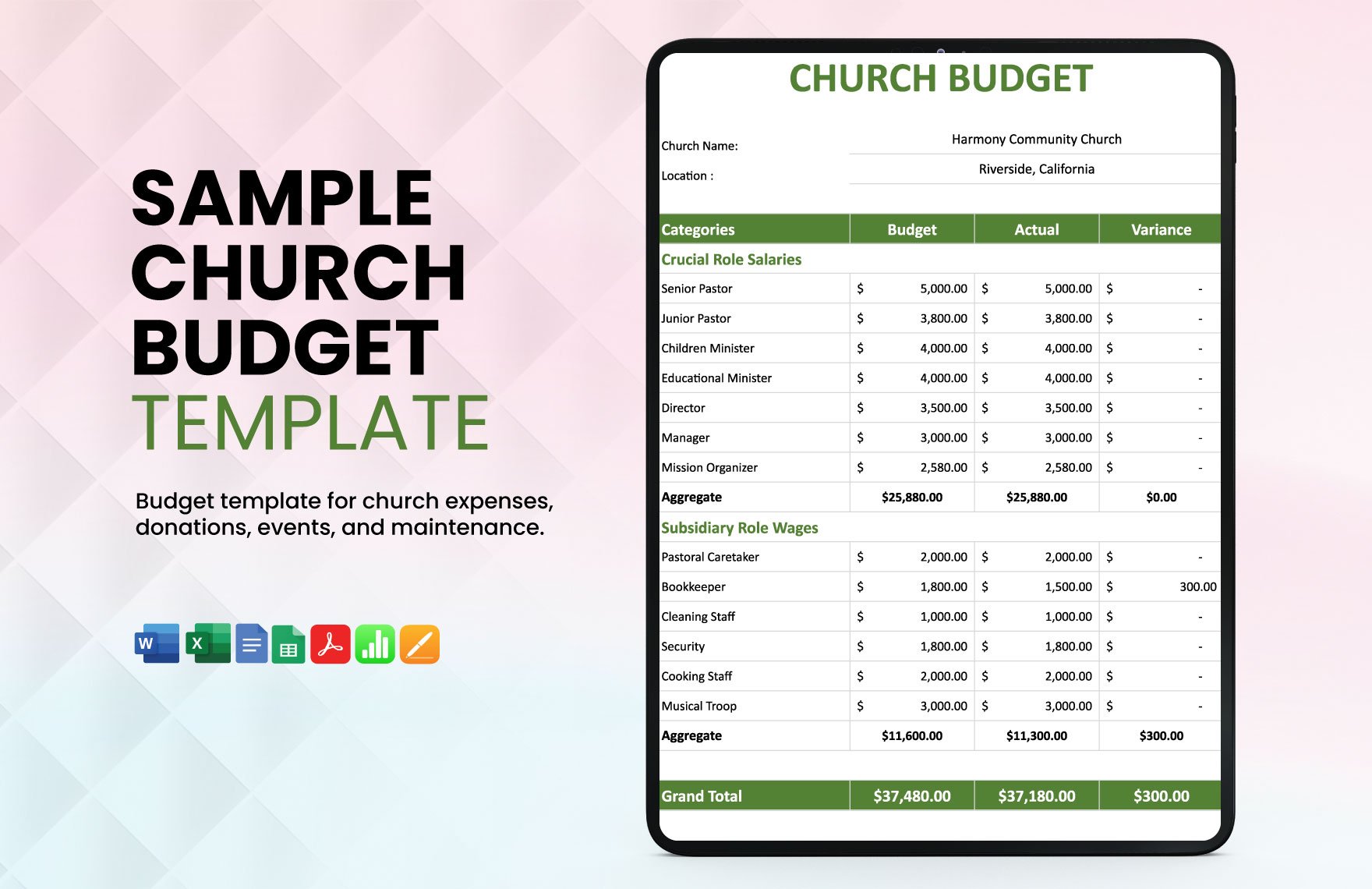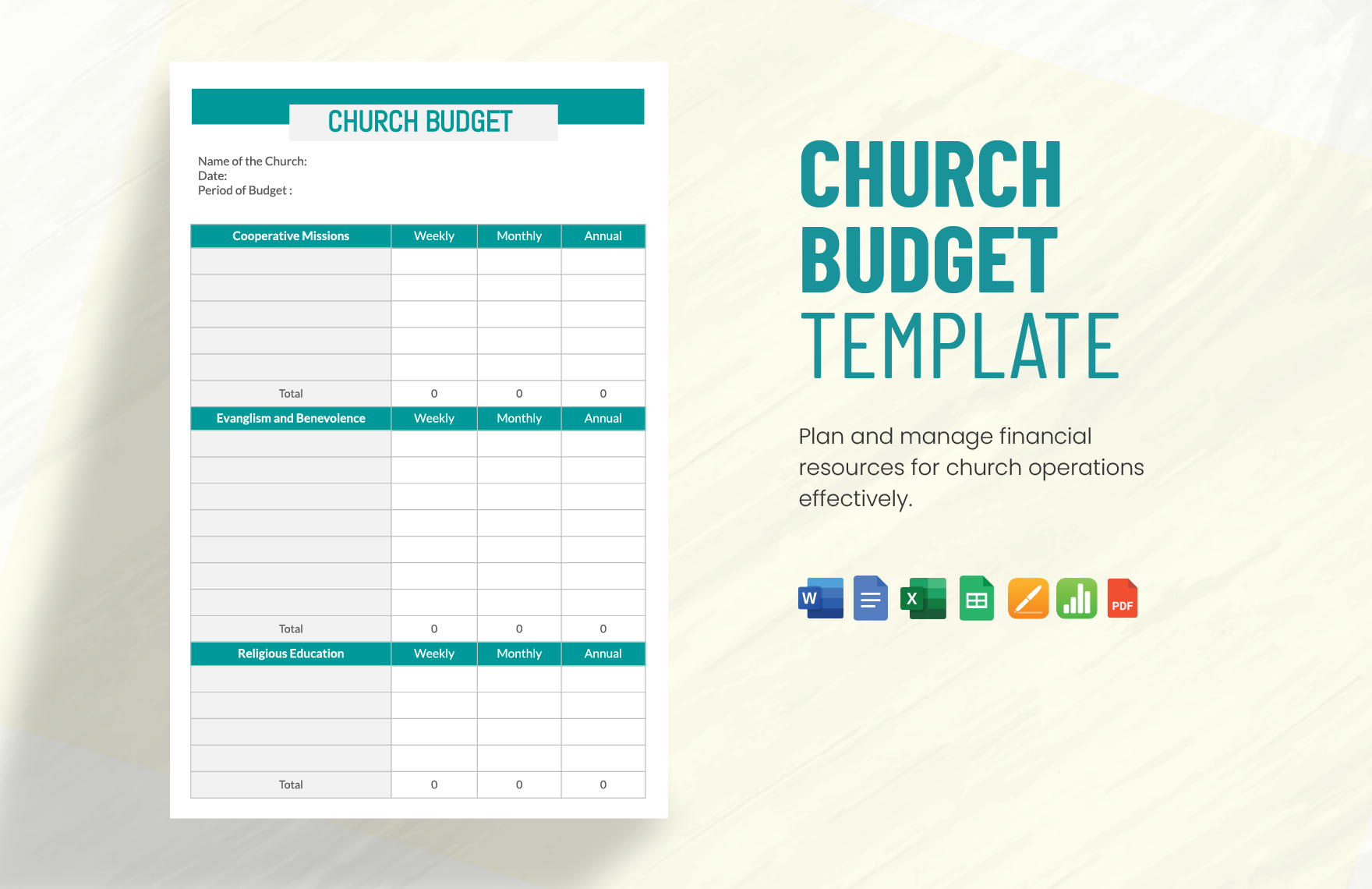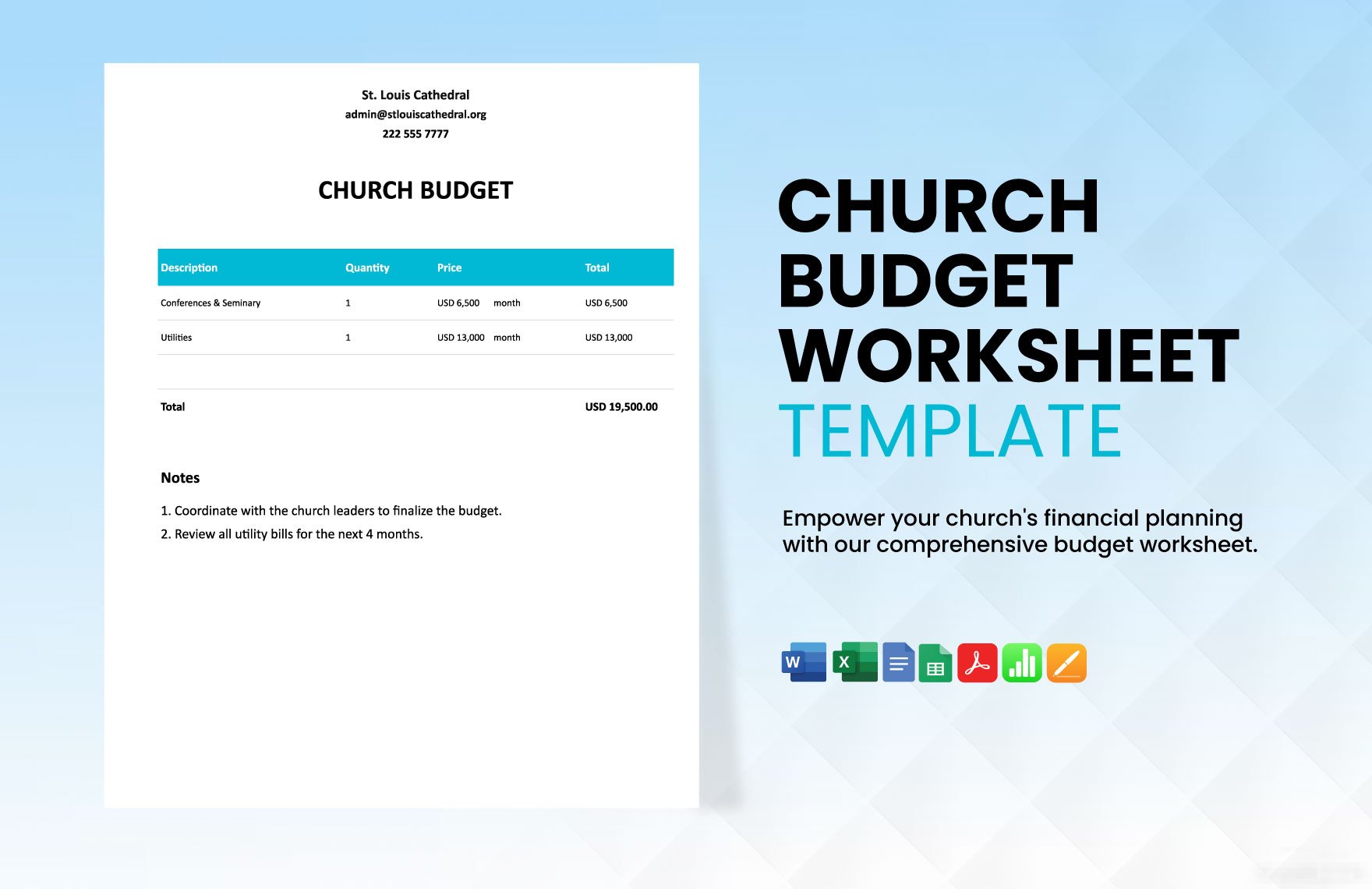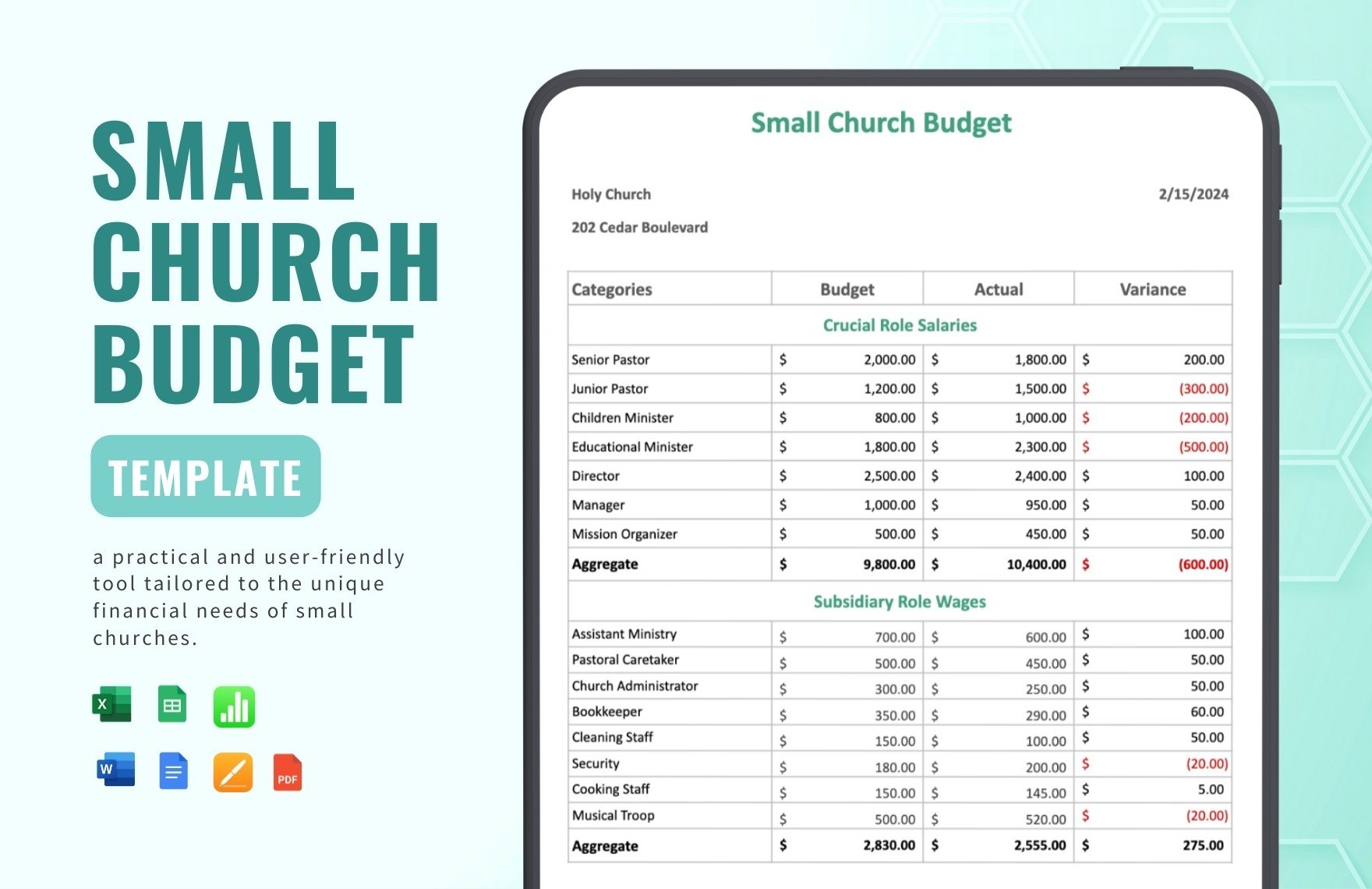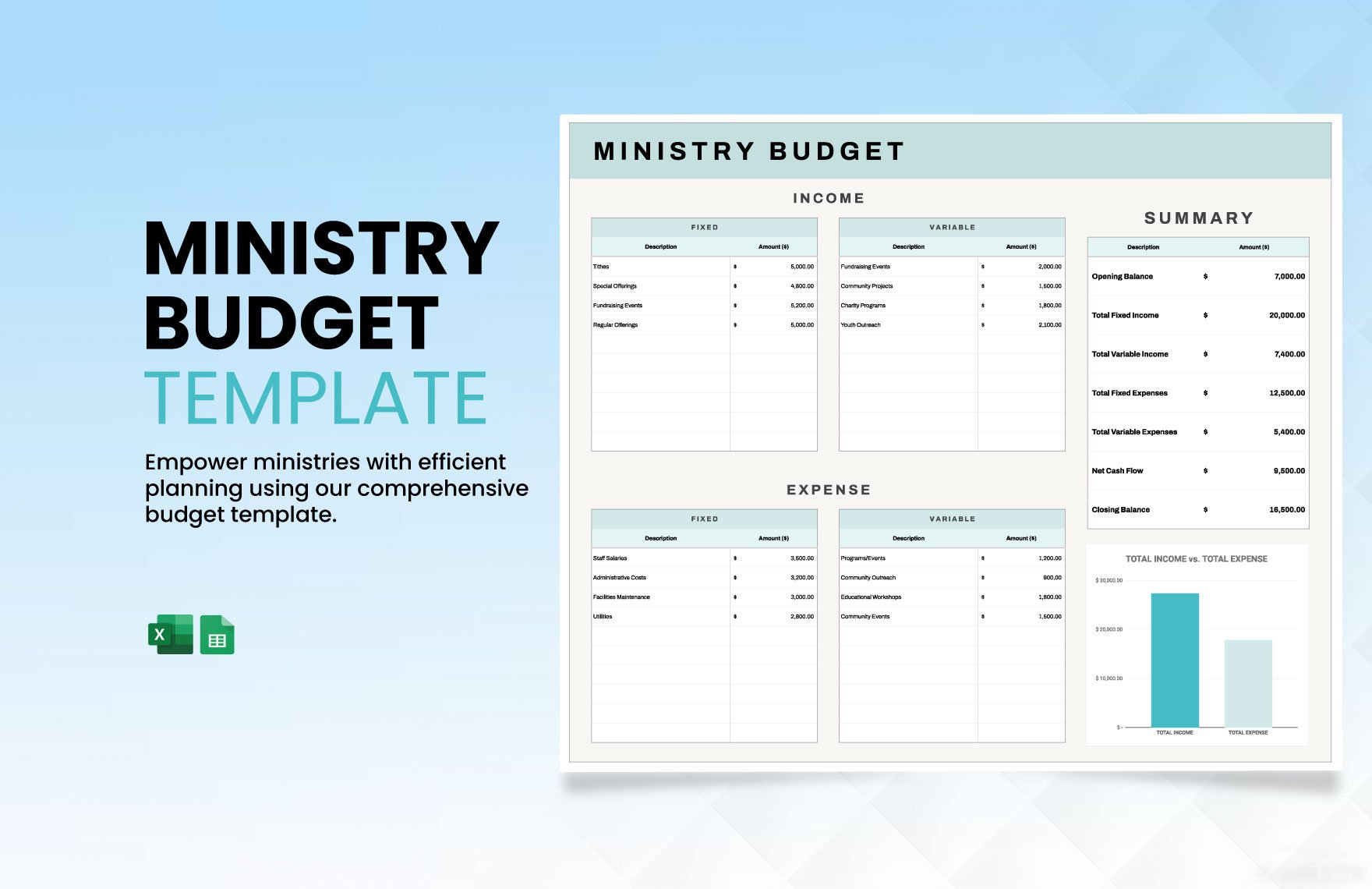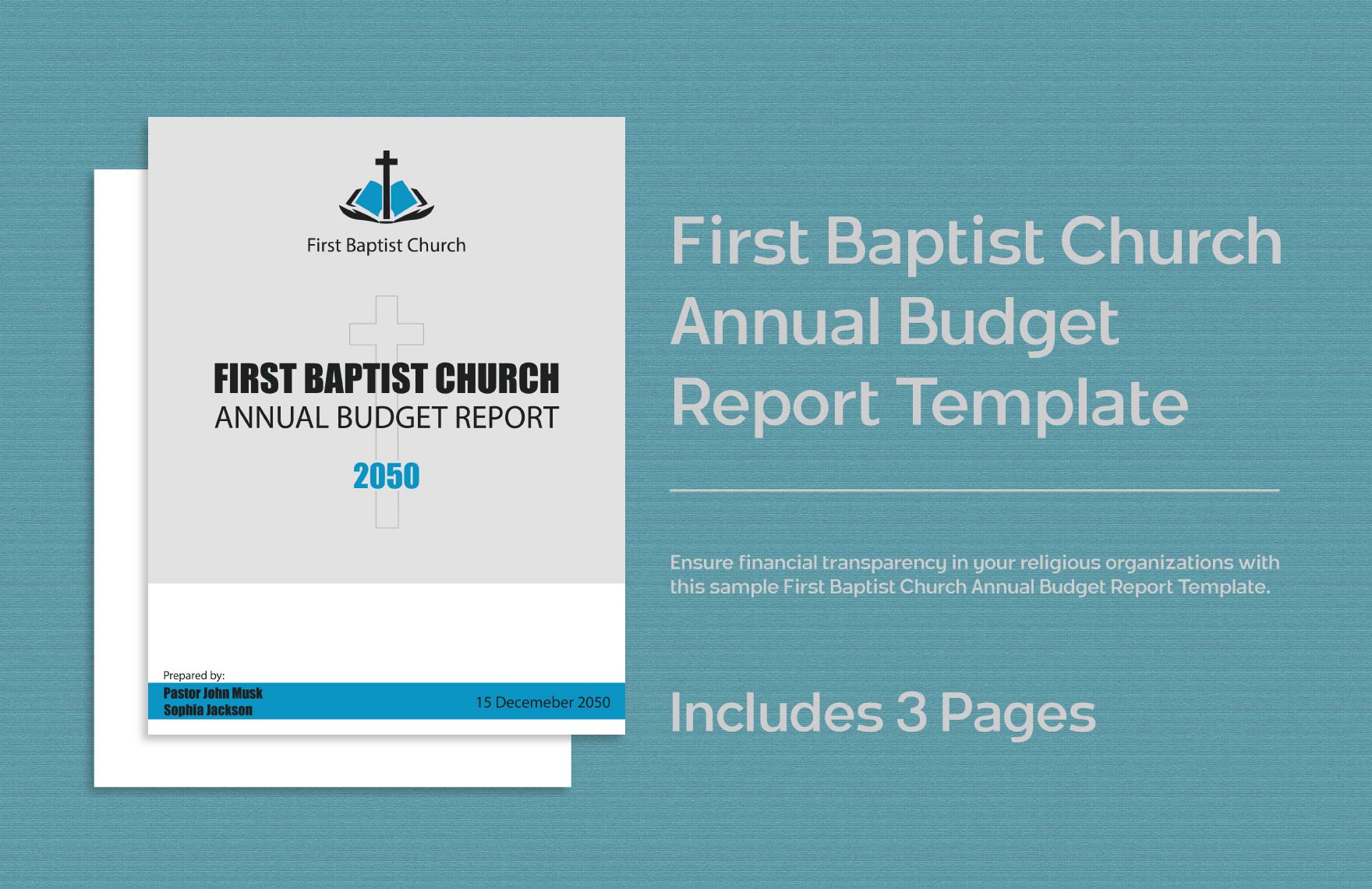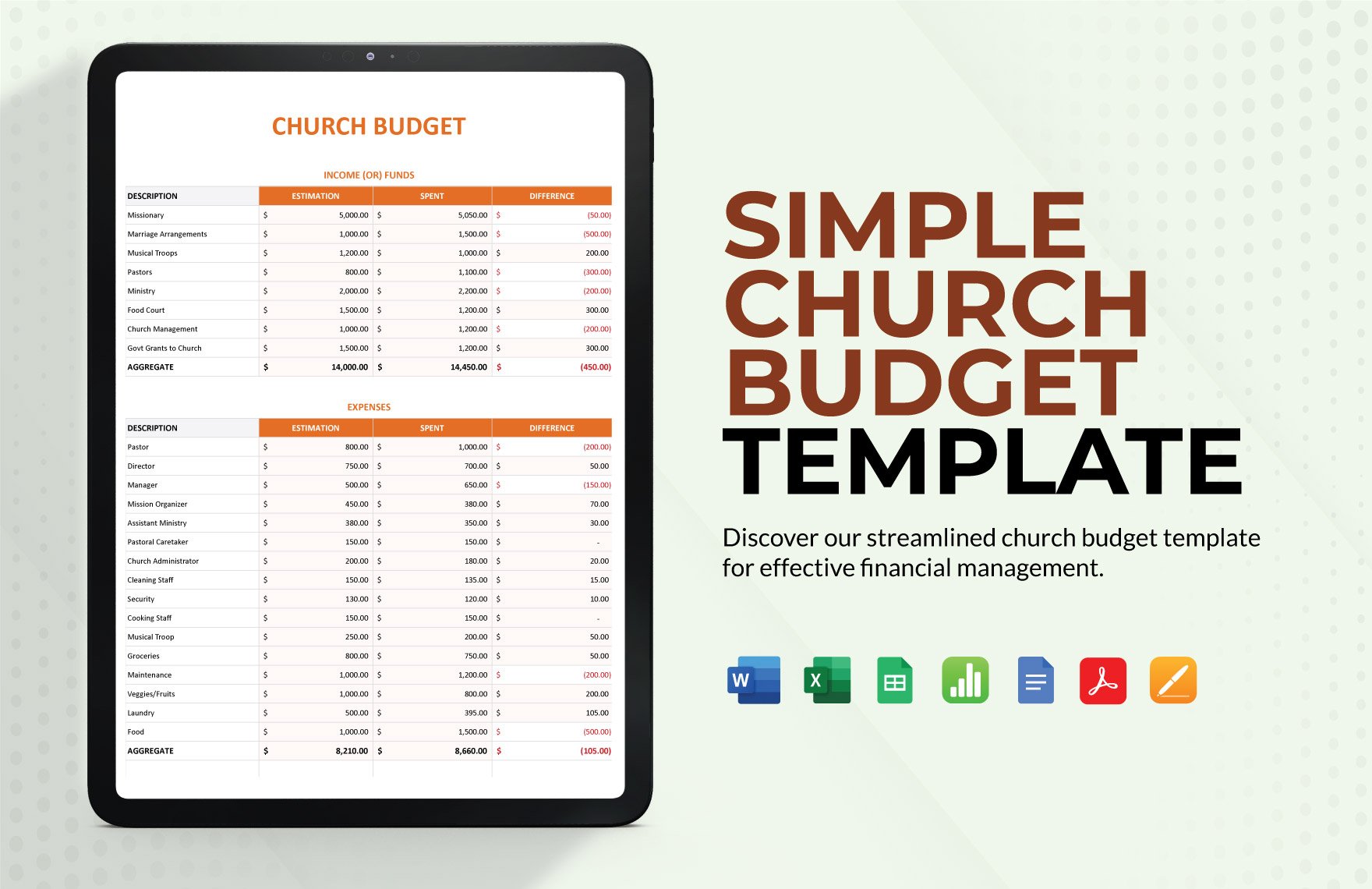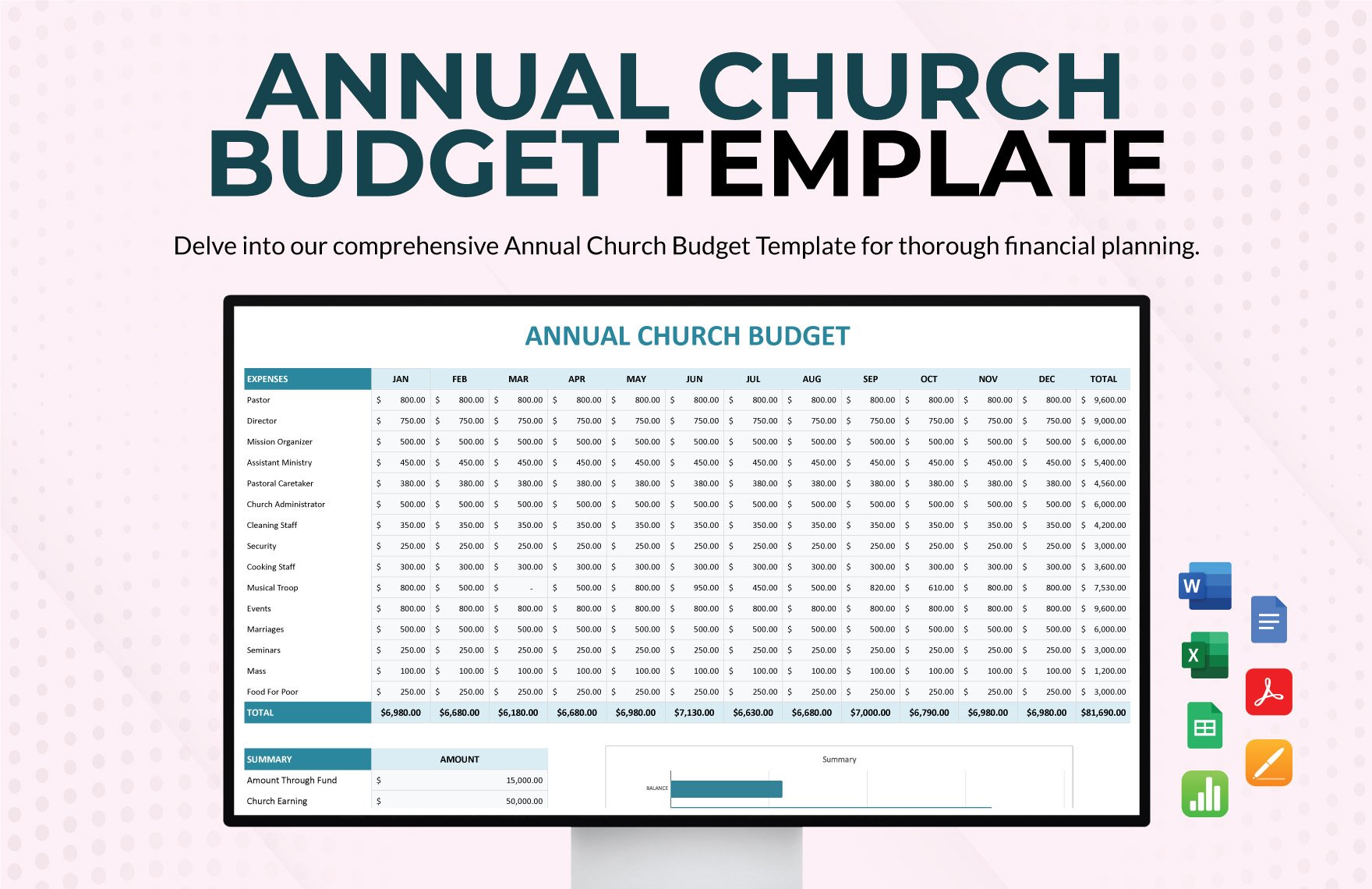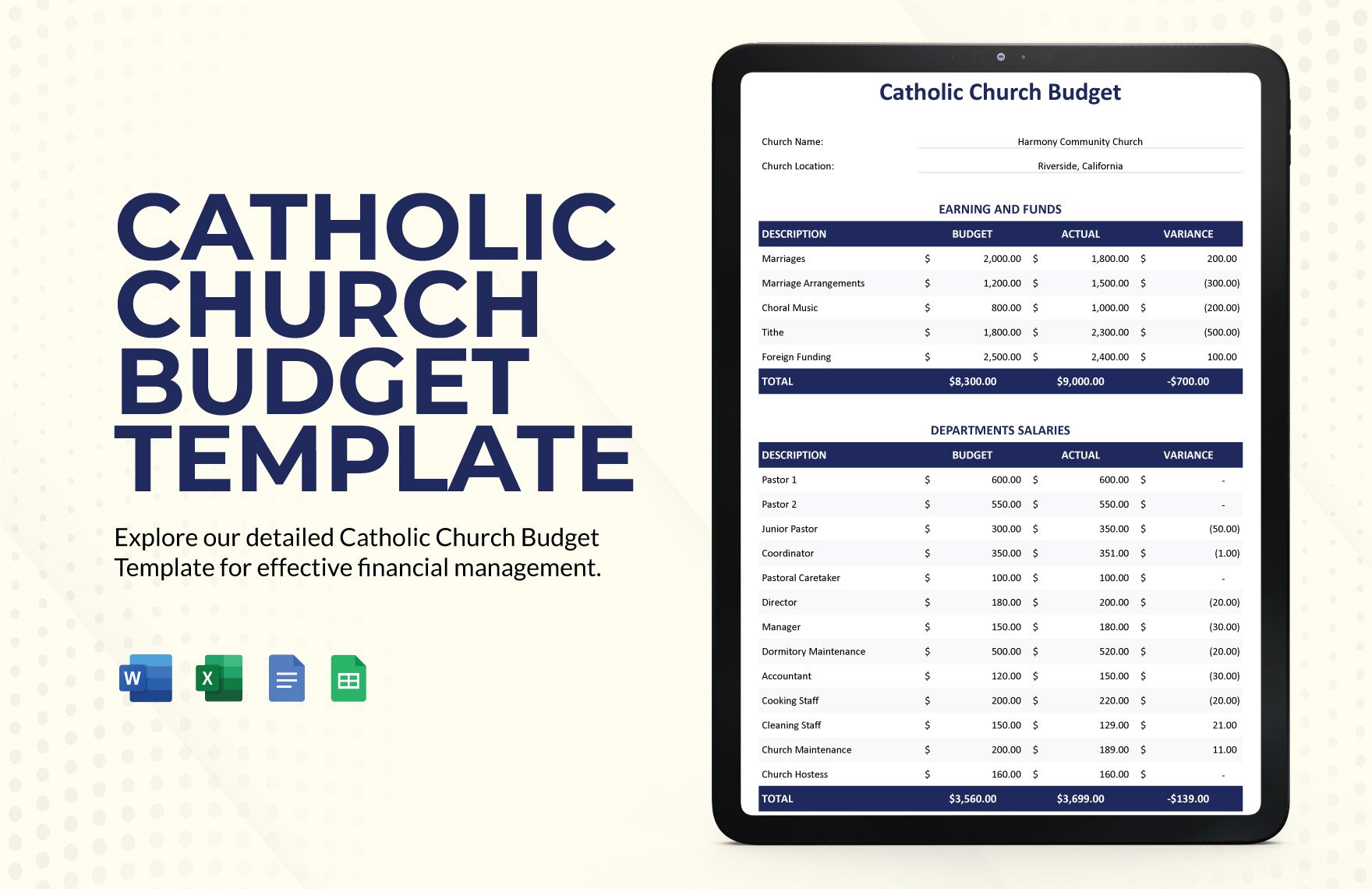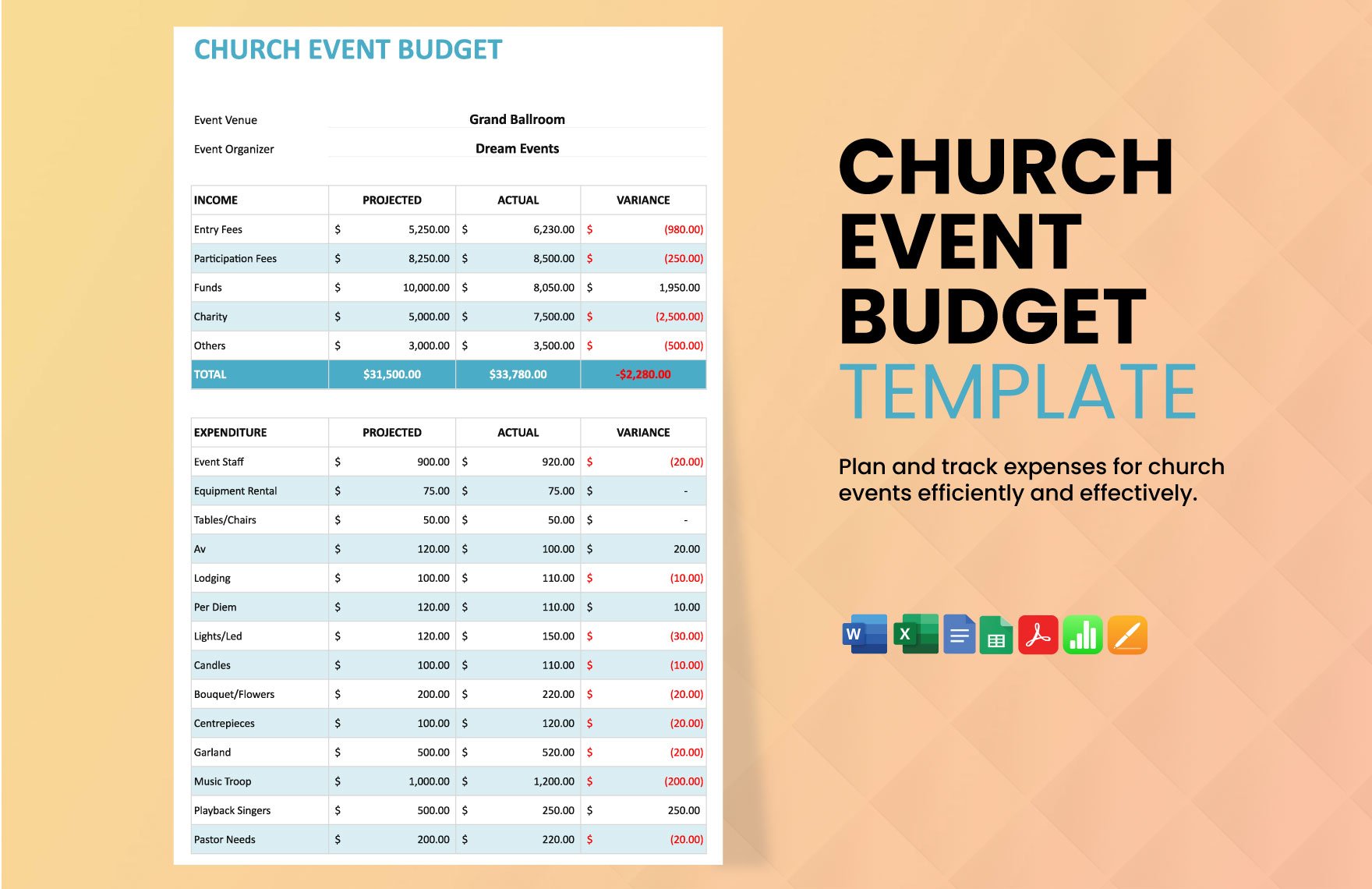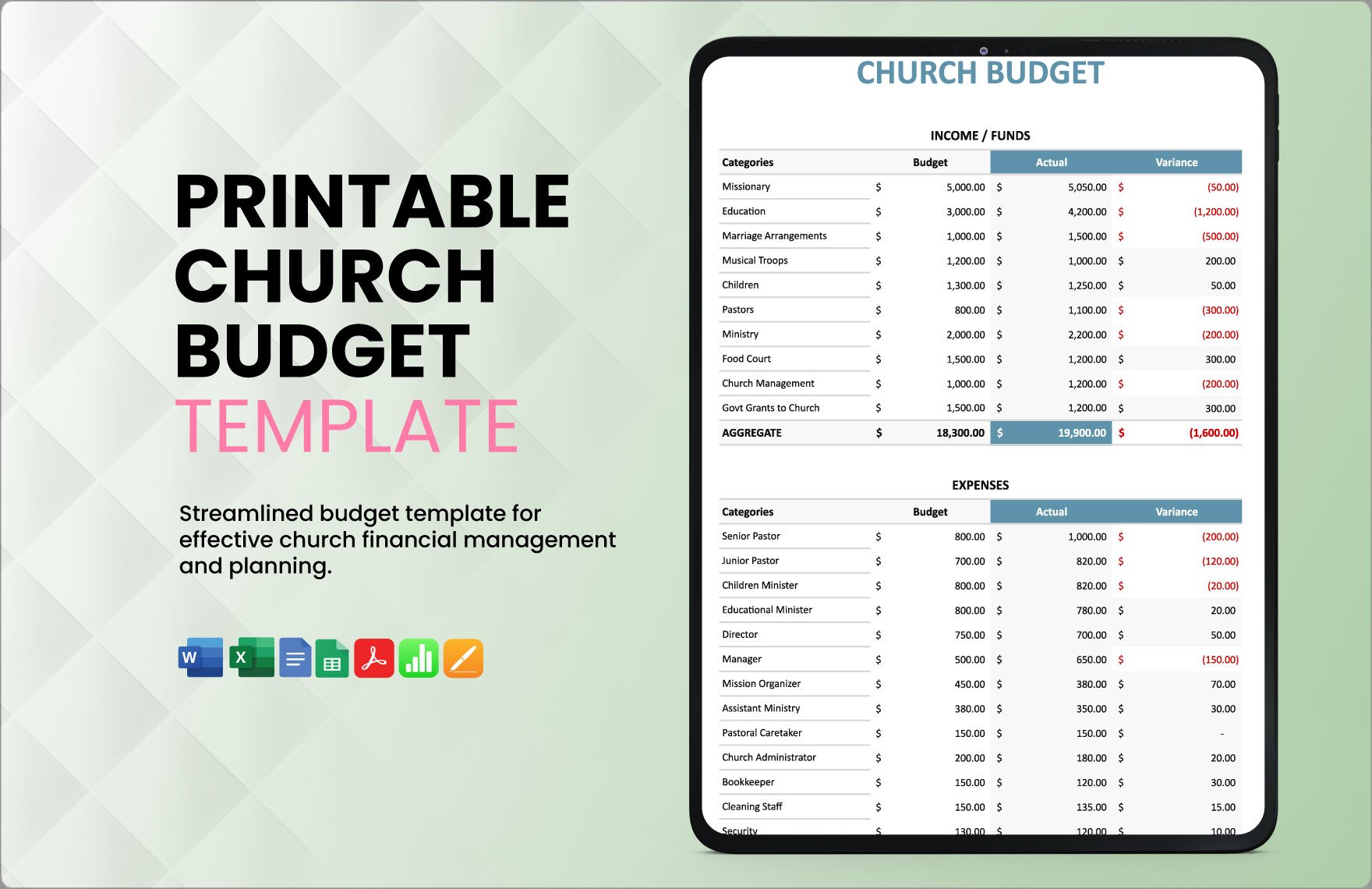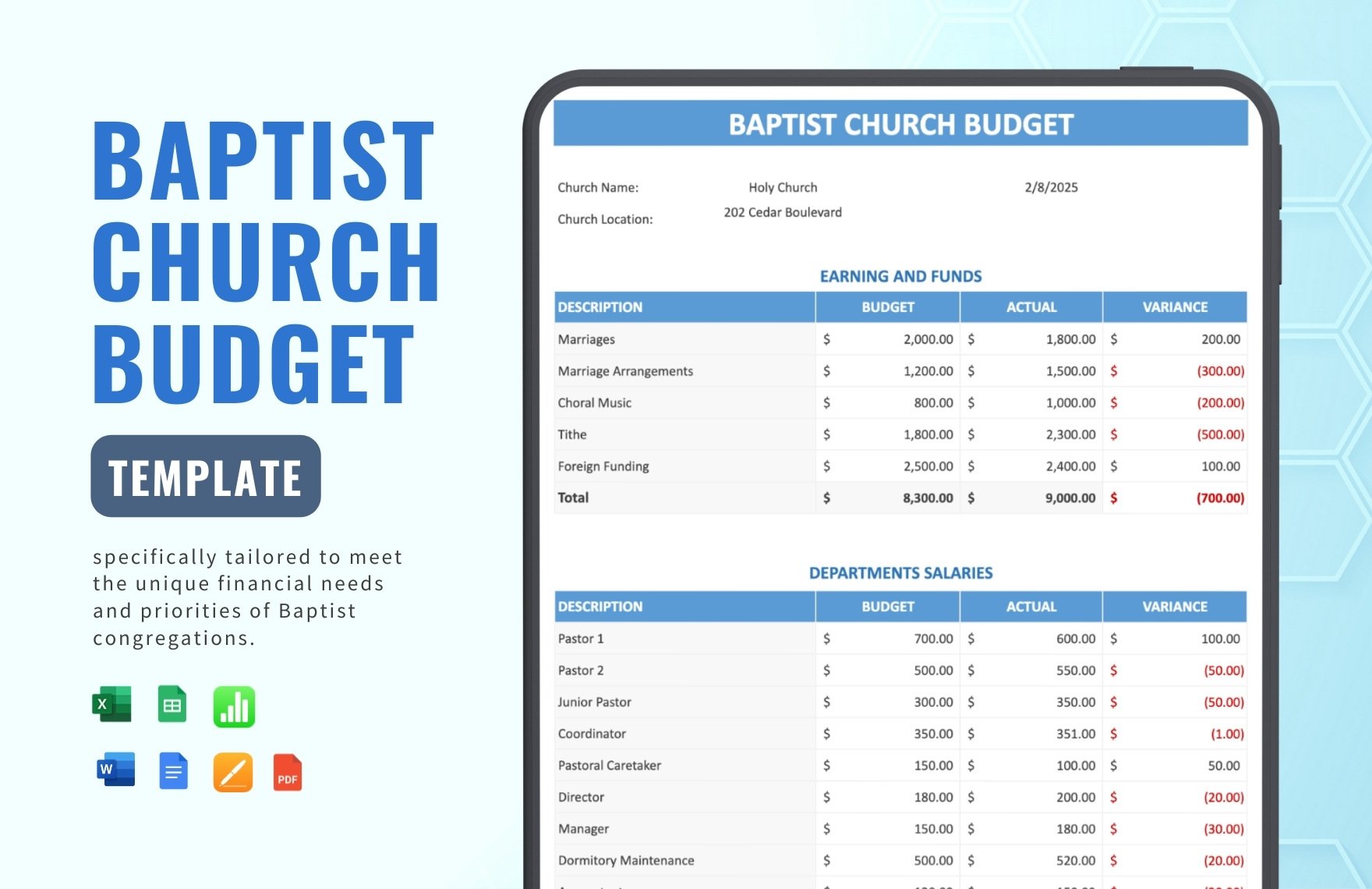Bring Your Financial Planning to Life with Church Budget Templates from Template.net
Keep your organization's finances in perfect order with our Church Budget Templates by Template.net. Specifically designed for church leaders and administrators, these templates are the perfect tool to help organize and manage your church's financial needs. Whether you are planning for a community outreach event or looking to streamline your annual financial review, our templates make it easy to keep your congregation informed, balance budgets with precision, and ensure financial transparency throughout your ministry. Each template includes essential call-out sections like time, date, location, and contact information, ensuring that your financial plans are clear and comprehensive. Say goodbye to the complexities of bookkeeping—our user-friendly templates require no advanced skills and offer free, professional-grade design layouts that are customizable for print and digital distribution.
Discover the many Church Budget Templates we have on hand, tailored to meet the unique needs of your church community. Start by selecting a template that best fits your project, whether it's an asset allocation plan or an event budget breakdown. Easily swap in your own data, adjust the colors to match your church's branding, and select from a variety of font options for a personalized touch. Enhance your document by dragging and dropping icons or graphics, adding animated effects, or using AI-powered text tools to suggest insightful additions. With endless customization possibilities, anyone can craft a professional-looking budget effortlessly. Our library is regularly updated, ensuring you have access to the latest templates and designs. Once your budget is ready, effortlessly download or share it with your team via email, print, or direct digital export, making communication seamless across all available channels.

